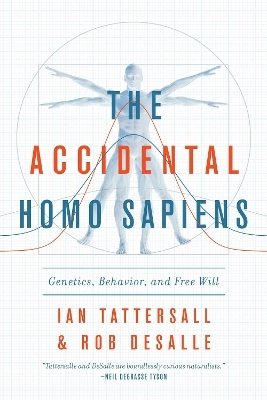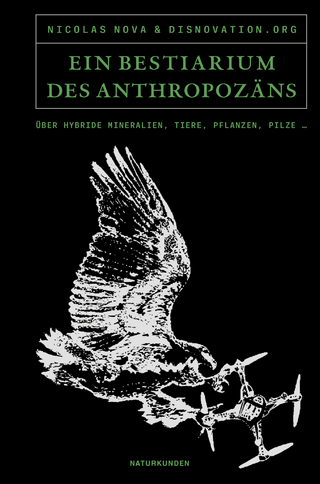
The Accidental Homo Sapiens
Pegasus Books (Verlag)
978-1-64313-026-2 (ISBN)
When you think of evolution, the picture that most likely comes to mind is a straight-forward progression, the iconic illustration of a primate morphing into a proud, upright human being. But in reality, random events have played huge roles in determining the evolutionary histories of everything from lions to lobsters to humans. However, random genetic novelties are most likely to become fixed in small populations. It is mathematically unlikely that this will happen in large ones.
With our enormous, close-packed, and seemingly inexorably expanding population, humanity has fallen under the influence of the famous (or infamous) “bell curve.” Ian Tattersall and Rob DeSalle’s revelatory new book explores what the future of our species could hold, while simultaneously revealing what we didn’t become—and what we won’t become.
A cognitively unique species, and our actions fall on a bell curve as well. Individual people may be saintly or evil; generous or grasping; narrow-minded or visionary. But any attempt to characterize our species must embrace all of its members and so all of these antitheses. It is possible not just for the species, but for a single individual to be all of these things—even in the same day. We all fall somewhere within the giant hyperspace of the human condition that these curves describe.
The Accidental Homo Sapiens shows readers that though humanity now exists on this bell curve, we are far from a stagnant species. Tattersall and DeSalle reveal how biological evolution in modern humans has given way to a cultural dynamic that is unlike anything else the Earth has ever witnessed, and that will keep life interesting—perhaps sometimes too interesting—for as long as we exist on this planet.
Ian Tattersall is Curator Emeritus in the Division of Anthropology of the American Museum of Natural History in New York City. The author of many books, including the widely praised Masters of the Planet, he is often interviewed about human evolution in the media and speaks around the world. He is the winner of numerous awards, and lives in Greenwich Village. Rob DeSalle is a curator in the Sackler Institute for Comparative Genomics and professor at the Richard Gilder Graduate School at the American Museum of Natural History. He is the author of The Science of Jurassic Park and the Lost World (with David Lindley, 1997) and the coauthor of Welcome to the Microbiome: Getting to Know the Trillions of Bacteria and Other Microbes In, On, and Around You (2015), among others.
| Erscheinungsdatum | 01.04.2019 |
|---|---|
| Verlagsort | New York |
| Sprache | englisch |
| Maße | 160 x 236 mm |
| Gewicht | 384 g |
| Themenwelt | Naturwissenschaften ► Biologie ► Allgemeines / Lexika |
| Naturwissenschaften ► Biologie ► Evolution | |
| Naturwissenschaften ► Biologie ► Ökologie / Naturschutz | |
| Sozialwissenschaften ► Ethnologie | |
| Sozialwissenschaften ► Soziologie | |
| ISBN-10 | 1-64313-026-9 / 1643130269 |
| ISBN-13 | 978-1-64313-026-2 / 9781643130262 |
| Zustand | Neuware |
| Haben Sie eine Frage zum Produkt? |
aus dem Bereich


